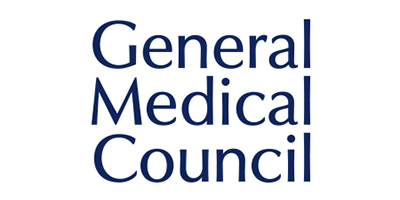Upper Blepharoplasty is the surgical removal of excess skin, fat and muscle from the upper eyelids.
Suitability for surgery
Blepharoplasty can correct drooping upper eyelids, features that can make you look older than you feel, or that can interfer with your vision. Blepharoplasty will not remove crows-feet or other facial wrinkles around the eyes or lift sagging eyebrows. These may be treated with a face-lift or brow-lift. Most patients are older than 35, but surgery may be suitable earlier.
The initial consultation
I will ask you what concerns you about the upper eyelids. It is often a heavy feeling at the end of the day and sometimes difficulty seeing properly later in the day. The most important function of the eyelid is to protect the eyeball, so will want to know how well the eyelids movement and visual function. I will ask whether you wear lenses (contacts or glasses) or if you have had any eye or corrective laser surgery. Do you have eye related problems such as dry eye or exces tearing. Do you also have to raise your eyebrows to improve your vision and this is usually a subconscious action.
I will examine look at what level the your eyes lie against the eye and to assess the quantity of excess skin and fat in the eyelids. I will look at where the eyebrow lies and how much movement there is in all these structures and will take measurements. I will discuss different types of treatment available and what is most appropriate for you.
Surgery
Surgery is usually done under a local anaesthetic as a day case. I mark the skin on upper eyelids in theatre , inject the anaesthetic and remove the skin and sometimes a strip of muscle. If you have some fullness this may be due to fat and needs to be meticulously removed. The skin is then closed with a stitch that is tapped at either end and you are given cooled eyepads for about an hour after surgery to help reduce swelling.
Risks
In general, when performed by a qualified plastic surgeon, upper blepharoplasty is safe, but no surgery is without risks
Bleeding and bruising after the surgery can occur, which can rarely require a return to theatre to remove it.
Wound breakdown is rare
Infection is also rare, but it usually occurs 7-10 days after surgery.
Wounds may be slow to heal.
Sensation in the skin may feel numb for 1-2 weeks after surgery, but sensation should return to normal.
Scars may become thickened or widened but this is unusual.
Symmetry the eyelids dont look exactly the same before surgery and won't look exactly same afterwards.
Double vision this is rare, but may occur if fat is being removed from the deeper areas and eye muscles have been injured.
Ptosis a drooping upper eyelid is very rare, but if the eyelid muscle is injured.
Under resection of skin this will leave residual fullness of skin
Over resection of skin you may not be able to fully close you eyelids. it usually improves with time and the eye is protected with eyedrops
Over resection of fat this may leave hollow looking eyes
Preparation for surgery.
You should mentally and physically fit. You should stop smoking 6 weeks before surgery and can start again when the wounds have healed at 2-4 weeks. Please do not take aspirin, naproxen for 10 days before surgery. You should have a shower the night before or the day of surgery. I will have emailed you a consent form, which you should print, read and sign and date the bottom of each page and bring the full document with you on the day of surgery , so that we can sign the last page together.
What to bring with you
Take your regular medications on the day, and anything you will want whilst on the ward for a few hours.
Recovery period
Please keep the tapes in place and i will arrange a wound check at 1 week and remove the stitches. i will also advise about scar care.
You should be able to return to work within a week, but you may self conscious and decide to take 1-2 weeks off. Recovery may take to 2 weeks, especially if bruising has occured
The Results
It will take 6-12 months to see the final results.
If you are worried post operatively
Please call the hospital ward you were on or Jan Richards 07722841078 9am-2pm Monday-Friday.
In an emergency, you may need to seek advice or attend your local hospital Accident and Emergency department.
Appointments
These can be made directly through the hospitals, via my PA Jan Richards or completing the form in the 'Contact' link above.






